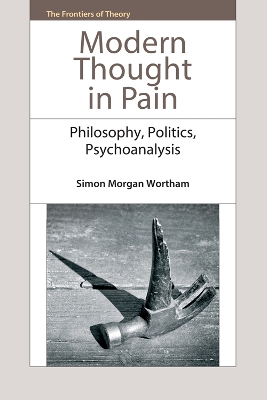The Frontiers of Theory
1 total work
This book analyses how modern conceptions of ethics, psychoanalysis and aesthetics are linked through the question of pain. Through a series of rigorous encounters with key critical figures, this monograph argues that modern thought is, in a double sense, the thought of pain. This book argues that modern European philosophy after Kant offers less the conceptual equipment to tackle pain in explanatory terms, than an experience of thought that participates in the forms of pain and suffering about which it speaks. Perhaps surprisingly, the question of pain establishes a ground from which to examine key debates in 20th-century European philosophy, most recently between forms of post-structuralist and ethical thinking imagined to be in crisis and the resurgence of discourses of political emancipation arising from traditions of thought associated with Marxism. It offers a systematic account of the modern European tradition's relationship to the question of pain and suffering, and new interpretation of "ethics" and "evil". It questions longstanding distinctions - between physical and psychological pain, 'my' pain and the pain of the other, human pain and animal pain.
It sets new agendas for reading post-Kantian philosophy.
It sets new agendas for reading post-Kantian philosophy.
